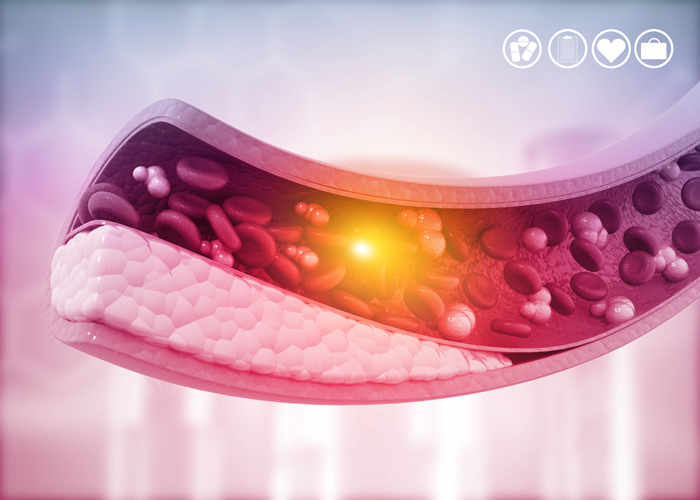Treatment for Thrombosis in Sadashiv Peth, Pune
Deep vein occlusion occurs when your veins are blocked with a blood clot called a thrombus. These blood clots usually develop in deeper veins like in your legs. It can lead to swelling and leg pain. It can also occur with no physical symptoms. Certain medical conditions that determine how blood clot formation takes place in your body can lead to deep vein occlusion. If you are on bed rest for a long duration of time and don’t often move your legs, then blood clot formation can happen in the veins of your legs. This can also occur when you lie in a certain position for a long duration of time, usually during long trips.
What is a deep vein occlusion?
Occlusion is a term for blockage by blood clots. When the occlusions take place in your deeper veins, usually in the veins of your legs, it is termed deep vein occlusion. There can be many reasons behind this. One common situation that leads to deep vein occlusion is staying in a certain position for long, usually during bed rest. Changes in blood clotting factors can also lead to the formation of blood clots in your veins. This can be treated but it can get serious too. The blood clot in your veins can break loose and travel in your bloodstream and can obstruct the blood flow to your lungs. This condition is called pulmonary embolism.

What are the symptoms of deep vein occlusion?
The symptoms of deep vein occlusion are as follows:
- Pale or red skin over the affected area.
- Inflammation of the veins in the affected area.
- Swelling in the affected foot/hand.
- Pain in the affected foot.
- Warmth in the affected area.
What are the causes of deep vein occlusion?
Blood clot in the veins is the primary cause of deep vein occlusion. The blood clot blocks the passage and makes it difficult for the blood to flow.
There are other causes of deep vein occlusion, such as:
- Medications: There are certain medications that increase the chances of formation of a blood clot in our veins
- Surgery: If by mistake any vein suffers any damage during surgery, then the chances of formation of a blood clot increase.
- Injury: Internal damage to blood vessels cause blood to clot.
- Inactivity: Slow movement or inactivity of the body may also cause blood clots.
What are the risk factors that lead to deep vein occlusion?
- Smoking is one of the risk factors which increases the chances of formation of blood in the blood vessels.
- Obesity or overweight increases the pressure on the blood veins.
- Age, deep vein occlusion can affect anyone but the age factor increases the risk. People above the age of 40 are at more risk
- Birth control pills or hormonal therapy increases the blood’s ability to clot.
- Genetics, certain genetic traits can be inherited. They can increase the chances of blood formation.
- Paralysis, because it causes inactivity and puts the patient at the risk of deep vein occlusions.
- Pregnancy is also a risk factor for blood clots.
- Cancer, some form of cancers increases the risk of forming a blood clot while the treatment of some cancers increases the risk of blood clots.
- Heart Failure.
When to see a doctor?
If you find any of the symptoms mentioned above, consult a doctor immediately. Seek emergency medical help if you notice symptoms of pulmonary embolism.
Request an appointment at Apollo Spectra Hospitals, Pune
Call 1860-500-2244 to book an appointment
How is deep vein occlusion treated?
The different treatment options for deep vein occlusion are as follows:
- Blood thinners: anticoagulants are called blood thinners. They prevent the blood clot from getting bigger and reduce the risk of more blood clots. They can be taken orally or can be injected.
- Clot busters: these are also called thrombolytics used in case of severe blood clots or other medications are not working for you. These drugs are either injected or given through a catheter.
- Compression stockings: these are special stockings covering your leg from your feet up to your knee and you are usually required to wear them for at least two years. These prevent the blood from pooling clotting.
- Filters: filters are inserted into your large vein also called vena cava to prevent the blood clot from reaching your lungs. These are given in case you cannot be given blood thinners.
The most serious and life-threatening complication of deep vein occlusion is pulmonary embolism. This happens when the blood clot travels to the lungs and obstructs the blood flow to the lungs.
If you feel symptoms like shortness of breath, rapid pulse, rapid breathing, chest pain, fainting, or in some cases coughing blood, seek emergency medical help.
Symptoms
Our Top Specialities
NOTICE BOARD
CONTACT US
CONTACT US
 Book Appointment
Book Appointment


.svg)
.svg)
.svg)
.svg)








